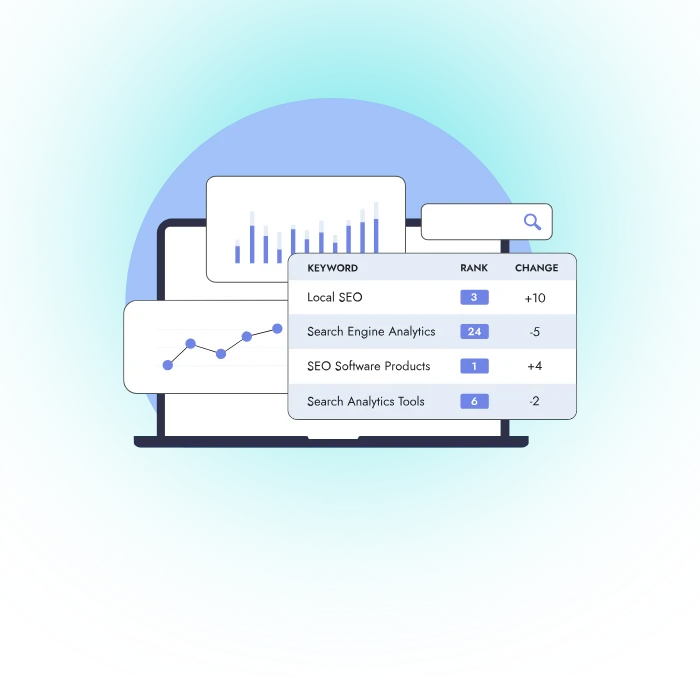Introduction
By embracing SEO in website development, you can leverage the power of search engines to attract potential customers and users. It goes beyond creating an aesthetically pleasing website and focuses on enhancing its visibility to relevant audiences.
One of the key aspects of SEO is keyword research. By identifying and incorporating relevant keywords into your website’s content, meta tags, and headings, you can align your site with the queries that users are entering into search engines.
Additionally, optimizing your website’s structure and navigation is crucial. A well-organized site with clear and user-friendly navigation not only improves the user experience but also makes it easier for search engine crawlers to index your content effectively.
Another important aspect is creating high-quality, valuable content. Engaging and informative content not only attracts users but also encourages them to spend more time on your website, reducing bounce rates and improving your site’s ranking.
Furthermore, earning backlinks from authoritative and relevant websites can significantly boost your site’s credibility in the eyes of search engines. Backlinks serve as endorsements for your content and can improve your website’s ranking in search results.
Regularly monitoring and analyzing your website’s performance through tools like Google Analytics allows you to identify areas for improvement and adapt your SEO strategy accordingly.
Implementing SEO in website development is fundamental to achieve online success. By optimizing your site for search engines, you can reach a broader audience, enhance user experience, and ultimately drive more traffic to your website. So, whether you’re a seasoned web developer or a business owner, investing in SEO is essential for the long-term success of your online presence.
Why is SEO important in website development
SEO is important in website development because it helps to ensure that your website is easily discoverable by search engines. When someone searches for a particular keyword or phrase related to your business or industry, you want your website to be one of the top results that appear. This is because the higher your website ranks in search engine results pages, the more likely it is that people will click on your website and visit it. This, in turn, can lead to increased traffic, more leads, and ultimately more conversions.
Another reason why SEO is important in website development is that it helps to ensure that your website is user-friendly and easy to navigate. When you optimize your website for search engines, you are also optimizing it for your users. This means that your website will be easier to navigate, more visually appealing, and more engaging for your users. This can help to improve user experience, encourage repeat visits, and ultimately lead to more conversions.
Finally, SEO is important in website development because it is an ongoing process. Unlike other forms of digital marketing, such as paid advertising, SEO requires ongoing effort and attention. This means that you need to continually monitor your website’s performance, update your content, and adjust your strategies to ensure that you are staying ahead of the competition. By doing so, you can ensure that your website remains visible and relevant to your target audience.
Understanding the basics of SEO
To understand SEO, it’s important to first understand how search engines work. Search engines use complex algorithms to crawl and index websites, which they then use to determine the relevance and authority of each website. The goal of SEO is to optimize your website so that it appears as relevant and authoritative as possible to search engines.
There are several key components of SEO, including keywords, technical optimization, on-page optimization, and off-page optimization. Keywords are the words and phrases that people search for when looking for information on a particular topic. By incorporating these keywords into your website’s content, you can help to ensure that your website appears in search engine results pages when people search for those keywords.
Technical optimization involves making sure that your website is structured in a way that is easy for search engines to crawl and index. This includes things like ensuring that your website has a sitemap, optimizing your website’s speed and performance, and using structured data to help search engines better understand your content.
On-page optimization involves optimizing the content on your website to make it more relevant and engaging for your users. This includes things like optimizing your website’s meta tags and descriptions, using header tags to organize your content, and including high-quality images and videos to make your content more visually appealing.
Off-page optimization involves building links to your website from other high-authority websites. This can help to increase your website’s authority and relevance in the eyes of search engines, which can ultimately lead to higher rankings in search engine results pages.
The role of keywords in SEO and how to conduct keyword research
Keywords play a crucial role in SEO because they are the words and phrases that people search for when looking for information on a particular topic. By incorporating these keywords into your website’s content, you can help to ensure that your website appears in search engine results pages when people search for those keywords.
To conduct keyword research, start by brainstorming a list of words and phrases that are relevant to your business or industry. You can then use keyword research tools like Google Keyword Planner or SEMrush to identify additional keywords and phrases that people are searching for related to those topics.
Once you have identified your target keywords, you can then begin to incorporate them into your website’s content.
Be sure to use your keywords in your website‘s meta tags and descriptions, as well as in the body of your content. However, be careful not to overuse your keywords, as this can be seen as spammy and can actually hurt your website’s rankings.
Technical SEO best practices for website development
Technical SEO is an important component of website development because it helps to ensure that your website is structured in a way that is easy for search engines to crawl and index. Here are some best practices for technical SEO:
– Use a sitemap to help search engines crawl and index your website
– Optimize your website’s speed and performance by using caching, compressing images, and reducing server response time
– Use HTTPS to secure your website and improve user trust
– Use structured data to help search engines better understand your content
– Optimize your website for mobile devices by using a responsive design or a mobile-specific website
By following these best practices, you can help to ensure that your website is optimized for search engines and is easily discoverable by your target audience.
On-page optimization techniques
On-page optimization involves optimizing the content on your website to make it more relevant and engaging for your users. Here are some techniques you can use to optimize your website’s on-page content:
– Use header tags (H1, H2, H3, etc.) to organize your content and make it more readable
– Use meta tags and descriptions to provide search engines and users with a brief summary of your content
– Use internal linking to help users navigate your website and improve your website’s authority
– Use high-quality images and videos to make your content more visually appealing
– Use social sharing buttons to encourage users to share your content on social media
By optimizing your website’s on-page content, you can help to improve user experience and make your website more discoverable by search engines.
Off-page optimization strategies
Off-page optimization involves building links to your website from other high-authority websites. Here are some strategies you can use to build high-quality backlinks to your website:
– Guest blogging on other relevant websites
– Participating in online forums and communities related to your industry
– Creating high-quality infographics and sharing them on social media and other websites
– Reaching out to influencers in your industry and asking them to share your content
By building high-quality backlinks to your website, you can help to increase your website’s authority and relevance in the eyes of search engines.
Measuring and tracking SEO success
Measuring and tracking your SEO success is crucial to ensuring that your website remains visible and relevant to your target audience. Here are some metrics you can use to measure your website’s SEO success:
– Keyword rankings: Track your website’s rankings for your target keywords over time
– Organic traffic: Monitor your website’s traffic from organic search over time
– Backlinks: Track the number and quality of backlinks to your website over time
– Click-through rate (CTR): Monitor your website’s CTR in search engine results pages over time
By monitoring these metrics, you can identify areas where your website’s SEO strategy may need improvement and adjust your strategies accordingly.
Common SEO mistakes to avoid in website development
While SEO can be an effective way to drive traffic to your website and increase your online visibility, there are also some common mistakes that can actually hurt your website’s rankings. Here are some SEO mistakes to avoid:
– Keyword stuffing: Overusing your target keywords can be seen as spammy and can actually hurt your website’s rankings
– Poor-quality content: Low-quality content that is not relevant or engaging can hurt your website’s user experience and ultimately hurt your rankings
– Duplicate content: Copying content from other websites can hurt your website’s authority and relevance in the eyes of search engines
– Broken links: Broken links can hurt your website’s user experience and can also hurt your rankings
By avoiding these common SEO mistakes, you can help to ensure that your website remains visible and relevant to your target audience.
Conclusion and final tips for successful SEO in website development
SEO is an important component of website development because it helps to ensure that your website is visible and relevant to your target audience. By understanding the basics of SEO, conducting keyword research, optimizing your website’s technical structure, and optimizing your on-page and off-page content, you can help to improve your website’s rankings and drive more traffic to your website.
To ensure continued success in SEO, be sure to monitor your website’s performance, adjust your strategies as needed, and avoid common SEO mistakes like keyword stuffing and poor-quality content. By following these tips and tricks, you can help to ensure that your website remains visible and relevant to your target audience, and ultimately drive more traffic, leads, and conversions to your website.
FAQs
What is the significance of SEO in website development?
SEO holds significant importance in website development as it ensures that websites are optimized to rank higher in search engine results. By incorporating SEO practices during development, websites become more visible to potential users, leading to increased organic traffic and better online exposure.
How does SEO impact the overall performance of a website?
SEO has a substantial impact on a website’s overall performance. By optimizing content, improving site structure, and enhancing user experience, SEO helps to boost search engine rankings, drive organic traffic, and increase user engagement, ultimately contributing to the website’s success.
What are the key SEO techniques used during website development?
Key SEO techniques utilized in website development include on-page optimization, keyword research, meta tag optimization, site speed optimization, mobile responsiveness, and link building. These techniques collectively improve a website’s search engine visibility and user experience.
Can SEO improve the online visibility of a newly developed site?
Yes, SEO can significantly enhance the online visibility of a newly developed website. By implementing proper SEO strategies from the beginning, the site becomes more accessible to search engines, leading to higher rankings and increased visibility to potential visitors.
Are there any best practices for integrating SEO into web projects?
Yes, there are several best practices for integrating SEO into web projects. These include conducting thorough keyword research, creating high-quality and relevant content, optimizing meta tags and headers, building a user-friendly site structure, and acquiring authoritative backlinks from reputable sources.
How does SEO contribute to a better user experience on websites?
SEO contributes to a better user experience on websites by ensuring that the content is relevant, easy to navigate, and accessible across various devices. A well-optimized site loads faster, provides valuable information, and offers a seamless browsing experience, leading to increased user satisfaction and engagement.
What role does keyword research play in website development and SEO?
Keyword research plays a crucial role in website development and SEO as it helps identify the specific terms and phrases users use to search for information. By integrating relevant keywords into website content, developers can better target their audience, improve search engine rankings, and drive more organic traffic.
Q8. How can SEO ensure better search engine rankings for a website?
SEO can ensure better search engine rankings by optimizing website content, improving site performance and usability, and building high-quality backlinks. When search engines recognize the site’s relevance and authority, it is more likely to rank higher in search results.
Are there any potential challenges in implementing SEO during web development?
Yes, there can be challenges in implementing SEO during web development. Some common issues include technical complexities, ensuring proper keyword integration without compromising content quality, and adapting to ever-changing search engine algorithms.
What are the long-term benefits of considering SEO in website development?
Considering SEO in website development offers several long-term benefits, including sustained organic traffic, increased brand visibility, higher conversion rates, and a competitive edge in the online market. A well-optimized website can continue to attract and retain users over time, driving business growth and success.






